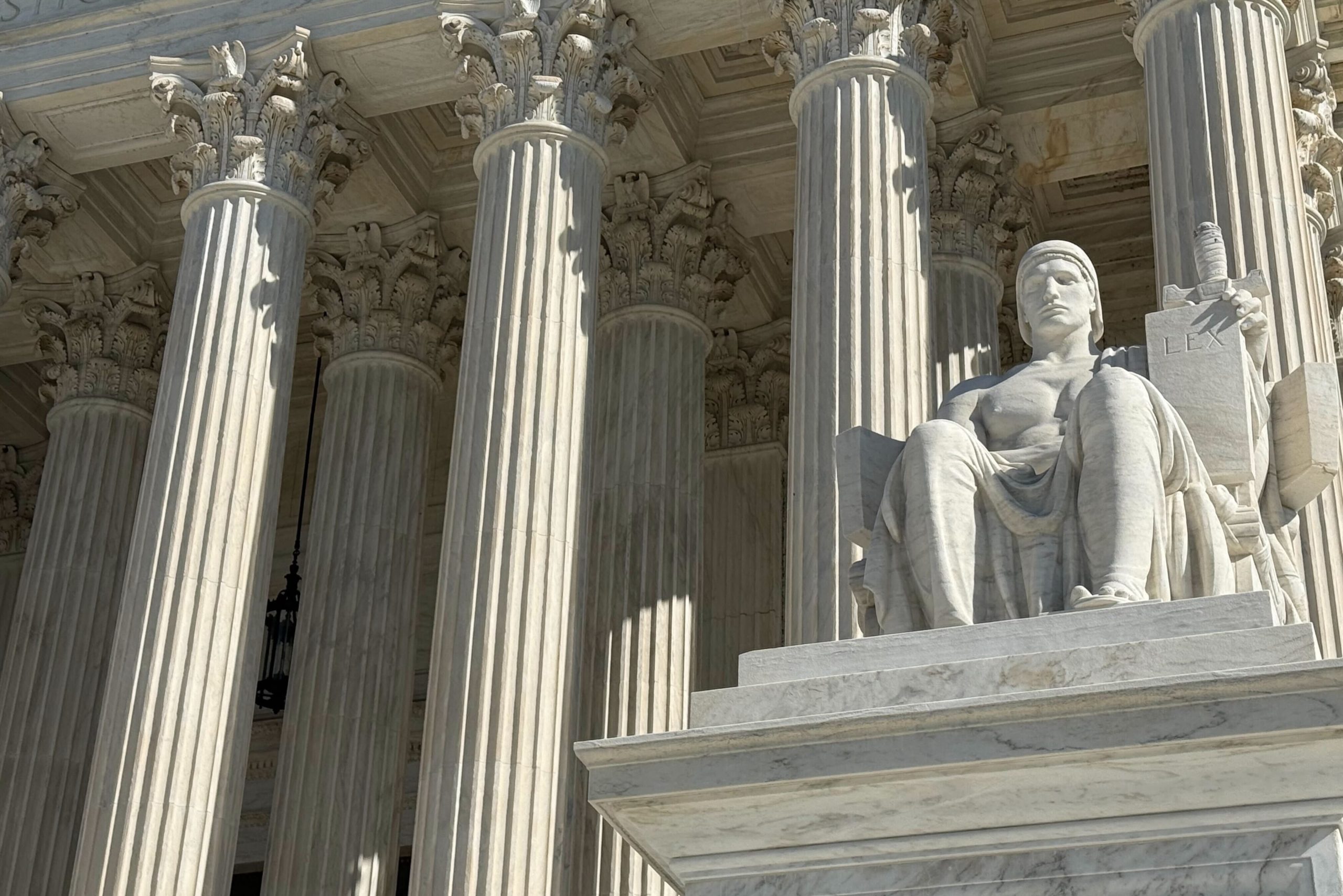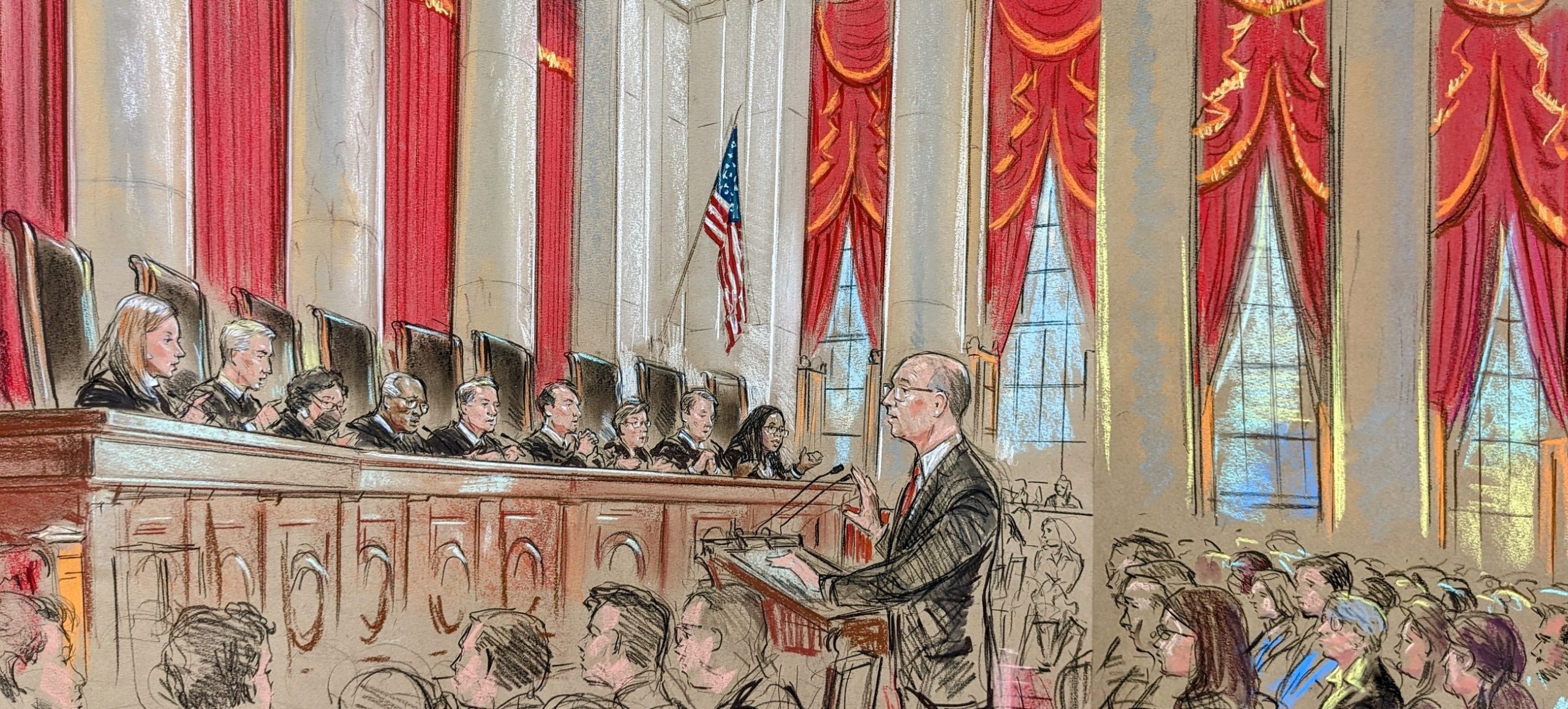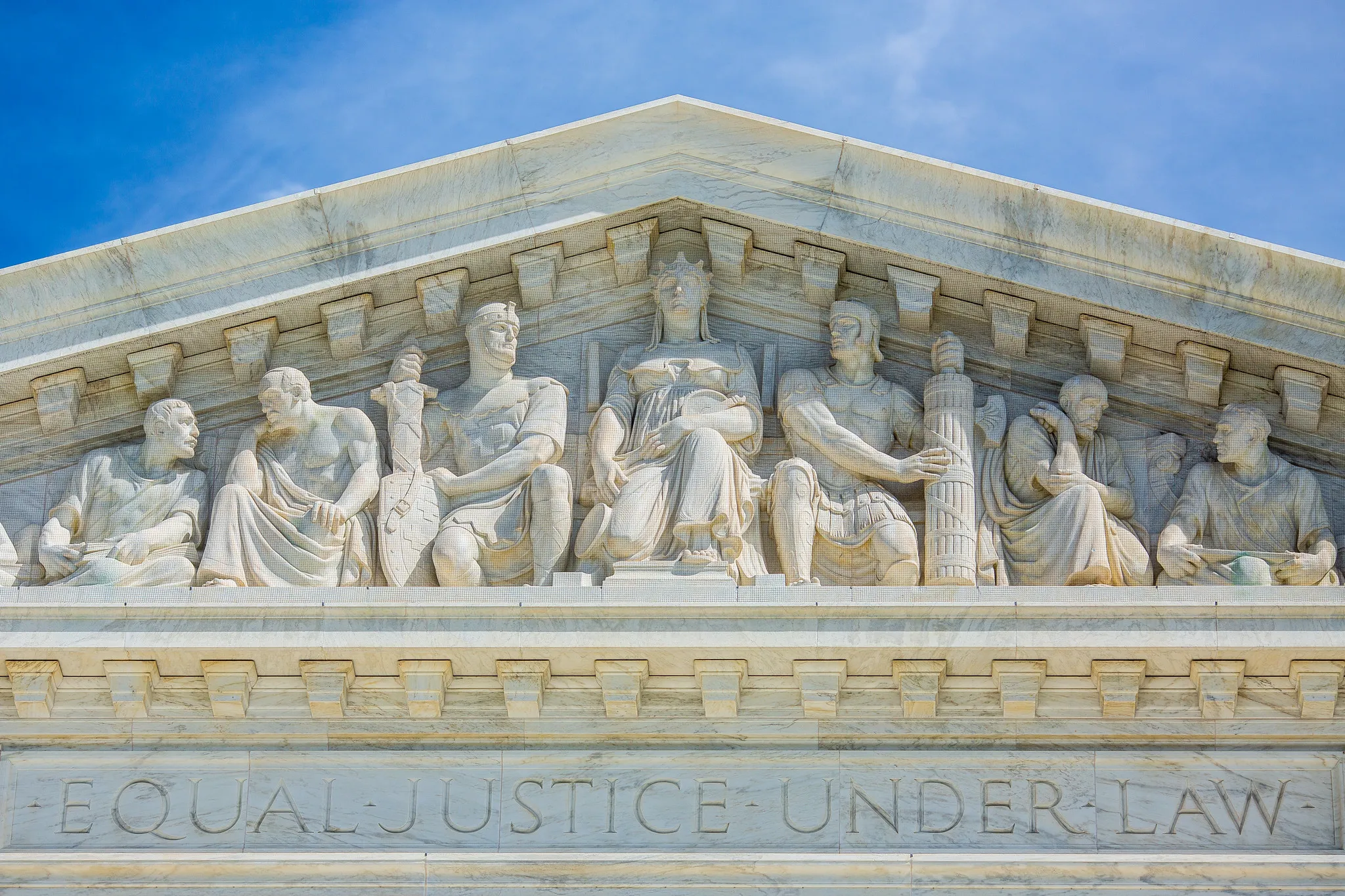High court to block Mexico’s lawsuit against gun manufacturers
ARGUMENT ANALYSIS
on Mar 4, 2025
at 2:33 pm
The justices heard Smith & Wesson Brands v. Estados Unidos Mexicanos on Tuesday. (Katie Barlow).
The Supreme Court signaled on Tuesday that it would likely shut down a Mexican lawsuit, which sought to hold seven major U.S. firearm manufacturers and a gun distributor responsible for violence committed in Mexico by drug cartels using U.S. made weapons. A majority of the court appeared to agree with the gun makers that the Mexican government’s suit is barred by a 2005 law intended to shield the gun industry from lawsuits in U.S. courts for the misuse of guns by others.
Mexico filed the lawsuit that is now before the Supreme Court four years ago in Massachusetts, seeking billions of dollars and an end to the marketing and trafficking of illegal guns to Mexico. The Mexican government claims that gun manufacturers deliberately design and market their weapons as military-styled weapons, knowing they will appeal to Mexican drug cartels. The court of appeals also argued that Mexico has to pay additional costs, such as for more law enforcement personnel and their training, due to the gun makers’ actions. Mexico also has to pay additional costs – such as for more law enforcement personnel and their training – as a result of the gun makers’ actions, the court of appeals reasoned.
Representing the gun makers at Tuesday’s oral argument, Noel Francisco told the justices that when Congress enacted the law at the center of the case, the Protecting Lawful Commerce in Arms Act, it intended to “prohibit lawsuits just like this one.” And Congress wanted to protect the Second Amendment rights of Americans, he added, by preventing plaintiffs from bankrupting the gun industry through frivolous lawsuits.
Catherine Stetson, representing the Mexican government, countered that the PLCAA was intended to guard against gun manufacturers being held liable for actions that are solely caused by criminals. Congress could have barred all lawsuits against the gun industry, she stressed, but instead it opted to include a carve-out for claims – like Mexico’s – alleging that the gun makers themselves violated state or federal laws.
The justices grappled with two separate questions: whether the gun makers had aided and abetted violations of U.S. gun laws and, if so, whether the gun makers’ conduct caused Mexico’s injuries.
Justice Neil Gorsuch seemed skeptical that the gun makers had aided and abetted violations of gun laws. He noted that it’s not enough for gun makers to have known that they were facilitating the violations of the law; they must intend to do so. Stetson informed the justices that gun makers “regularly” receive information from the Bureau of Alcohol, Tobacco, Firearms, and Explosives regarding “problem” dealers, those who sell guns recovered at crime scenes in Mexico. These are “exactly the kind of specific allegations” that Mexico needs at this stage of the case, Stetson maintained.
But Justice Ketanji Brown Jackson pressed her, noting that the parts of Mexico’s complaint to which Stetson referred do not actually allege a violation of any U.S. laws. Instead, she said, “those statements just go to whether or not the defendant had knowledge that at the end of the day, some dealers might be doing something wrong.”
Justice Elena Kagan expressed a related concern, reiterating that Mexico had not alleged that the gun makers were aware of problems with specific dealers. “Who,” Kagan asked, “are they aiding and abetting in this complaint?”
Francisco insisted that the gun makers’ conduct could not have been the legal cause of Mexico’s injuries. He told the justices that there are “a multitude of independent crimes” between the initial sale of a firearm to a licensed distributor, and its use by drug cartels. There is “not a single case in history that comes close to that” kind of extended chain of causation, he argued.
Justice Sonia Sotomayor suggested that she and her colleagues might try to sidestep a ruling on the causation question, noting that the Supreme Court’s cases on this issue “are a mess.” For the justices to address it, she indicated, it would open “up a Pandora’s box.”
Justice Amy Coney Barrett appeared to agree. If the court were to rule for the gun makers on the question of aiding and abetting violations of U.S. gun laws, she asked Francisco, would it even need to address the causation question?
Some justices had broader worries. Justice Brett Kavanaugh asked Stetson about what he described as a “real concern” for him: the prospect that allowing Mexico’s lawsuit to go forward would have “destructive effects” on the U.S. economy for other industries that know their products are being misused, like pharmaceuticals or car manufacturers.
As major tariffs on Mexico went into effect this morning, little of the argument touched on diplomatic tensions with the country in recent weeks. Justice Samuel Alito asked a question, describing it as the perspective of ‘ordinary Americans’. He was referring to the Trump administrations efforts to pressure Mexico over the flow of migrants and drugs across the border. He told Stetson that Mexico claims U.S. gun makers are involved in illegal conduct in Mexico. Alito responded that “there are Americans who believe that Mexican government officials contribute to a lot illegal conduct” in the United States. Should a U.S. state be able, he asked, to sue Mexico in a U.S. court for “aiding and abetting illegal conduct within the state’s borders” that causes harm to the state?
Jackson also expressed skepticism about allowing the lawsuit to go forward, suggesting that with the PLCAA Congress wanted to shield “its own prerogative to be the one to regulate” the gun industry, rather than giving that power to the courts. And she suggested that a case like this one, “where we don’t really see exactly how the manufacturers are violating a particular federal or state law,” might be “running up against” the concerns that motivated Congress to pass the PLCAA in the first place.
Stetson pushed back, emphasizing that lawsuits like Mexico fell squarely within the PLCAA’s carve-out for violations of U.S. law. She insisted that Mexico “is not trying [to] legislate gun usage in the United States.” This article was originally published on Howe on the Court.






